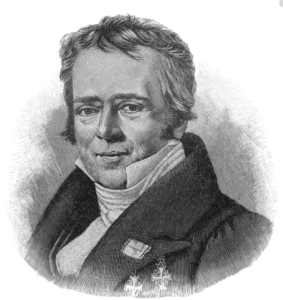The Supreme Court has ruled that the family having the last name of Ørsted must tolerate and co-exist with the commercial use of ØRSTED. The judgement states that the energy company has the right to register and use several trademarks, domains and company names including or consisting of ØRSTED.
The Supreme Court confirms that the commercial use of ØRSTED or  is not a reference to the family, or the 418 persons with Ørsted as their last name, but that the relevant public will perceive ØRSTED as a reference to the famous scientist Hans Christian Ørsted
is not a reference to the family, or the 418 persons with Ørsted as their last name, but that the relevant public will perceive ØRSTED as a reference to the famous scientist Hans Christian Ørsted  (H.C. Ørsted). and will not be seen as a reference to the 418 persons with Ørsted as their last name.
(H.C. Ørsted). and will not be seen as a reference to the 418 persons with Ørsted as their last name.
H.C. Ørsted passed away more than 170 years ago, and the descendants of H.C. Ørsted or his brother have no right to prevent the registration or use of the name and reference to H.C. Ørsted.
The legal ground section 14(4) of the (previous) Danish Trademarks Act stating that family names are excluded as trademarks both on absolute and relative grounds unless the name/trademark refers to a famous deceased person. Case law has stated that the famous deceased person must have passed away at least two generations (70 years) ago for the trademark to pass through to registration.
The judgement by the Supreme Court confirms the decision by the Danish Maritime and Commercial High Court. The decision by the Danish Maritime and Commercial High Court was reported in a previous blog.
Prior to the Ørsted judgement, section 27 of the Names Act was used when interpretating of section 14(4) of the Trademarks Act. In another ruling from the Supreme Court, namely U 1984/1103 H (Bogart) from 1984, it was explicitly stated that the Names Act could be used to prevent trademark registration and use. Thus, an interaction between the Trademarks Act and the Names Act has existed for years.However, with the latest decision by the Supreme Court, it seems as if the Supreme Court has changed case law and limited the applicability of the Names Act where trademarks/names are used for commercial purposes. The Supreme Court seems to take the approach that the fact of a name being a “rare name” used by up to 2000 people is not enough to prevent a trademark registration, considering it unlikely that up to 2000 bearers of a particular “rare name” will have a sense of community.
At the same time, the Supreme Court confirms that the practice followed by the Danish Patent and Trademark Office (DKPTO) in relation to section 14(4) of the Trademarks Act, where the DKPTO has ex officio rejected trademarks containing very rare names (used by 30 people or less) seems to be a correct implementation of section 14(4).
Those who disagree with the Supreme Court’s decision in the Ørsted case may take comfort in the fact that the decision is based on the previous Trademarks Act (applicable before January 2019). However, as the wording of relevant section of the Trademarks Act has not changed, we should not get our hopes up.
One can only hope that one of the judges from the Supreme Court will take the time to write an article giving some insight into their thoughts, explaining the reasoning behind dismissing the interaction between the Trademarks Act and the Names Act in more detail.
_____________________________
To make sure you do not miss out on regular updates from the Kluwer Trademark Blog, please subscribe here.


